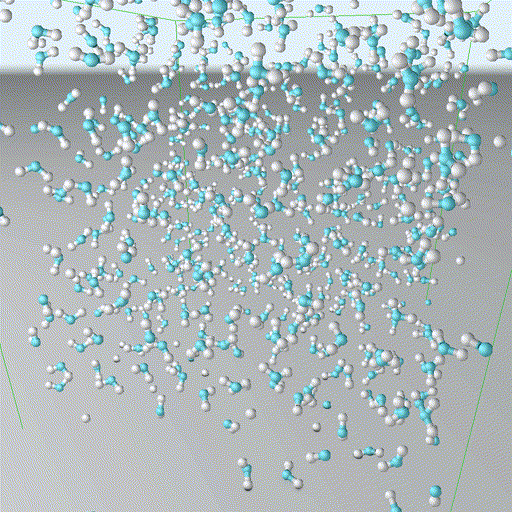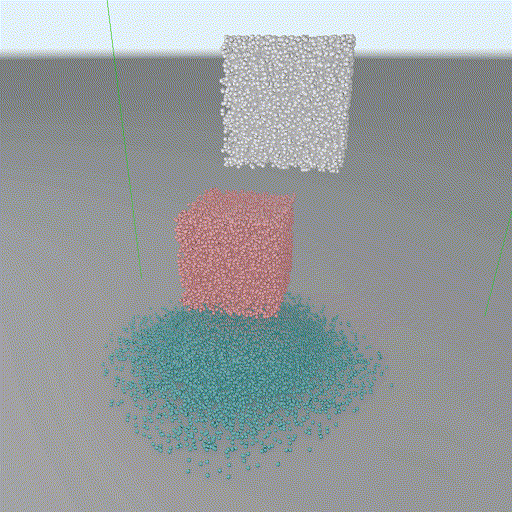Interactive, GPU-accelerated Molecular (& Macroscopic) Dynamics using the Taichi programming language
(05/26/2022) TaichiMD is now made compatible with taichi v1.0.
- To extend capabilities of the Taichi programming language in computer graphics to molecular simulation education and research
- To achieve interactive, real-time particle-based simulations accelerated by GPUs
- To provide a platform for rapid implementation of novel simulation algorithms and machine-learned simulations
python run_examples.py [-h] example ensemble
positional arguments:
example [lj | mixlj | biglj | ho | chain | pr]
lj: Lenneard-Jones system with 4096 molecules, in reduced units;
biglj: Lenneard-Jones system with 0.26 million molecules, in reduced units;
mixlj: 3-component Lenneard-Jones mixture with 6000 molecules, in reduced units;
ho: Harmonic oscillator around the center of the simulation box;
chain: 5 harmonic-bond chain molecules with 100 atoms each, bond bending and torsion not included, in real
units
pr: 512 propane molecules using the TraPPE-UA force field with a harmonic bond
stretching potential at 423 K in a 50*50*50 angstrom box
ensemble [NVE | NVT]
NVE ensemble with Verlet integration or NVT ensemble with Nose-Hoover thermostat
optional arguments: -h, --help show help message and exit
mpm28.py: The MPM88 Taichi example (fluid simulation) in 3 dimensions.
mpm48.py: The MPM99 Taichi example (fluid, jelly and snow) in 3 dimensions.
TaichiMD ships with a miniature static version of taichi_three for rendering graphics, which requires the taichi_glsl package. If the renderer was not imported correctly, the example simulations will use the Taichi GUI canvas for graphics.
- Add support for torsional potentials as cosine series
- Add Coulomb forces between charged atoms
- Implement Ewald summation and/or fast multipole method for long-range forces (Coulomb)
- Implement gravity and wall boundaries
- Incorporate macroscopic particle simulation algorithms (SPH, etc.)
- Incorporate agent-based simulation algorithms (crowd simulation, particle swarm) and optimization-based integrators

